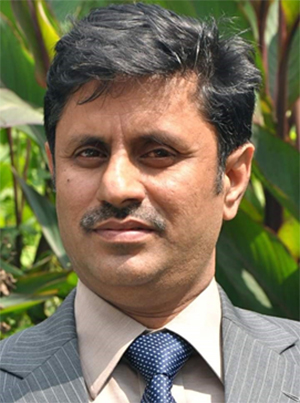
Shashi Kumar Dhiman
Professor Of Physics at Himachal Pradesh UniversityShimla, Himachal Pradesh, India
Prof. Dhiman is the founder Vice-Chancellor of Himachal Pradesh Technical University. He has published over a hundred research papers and review articles in peer-refereed International and National Research Journals and guided twenty four research scholars for their Ph.D. and M.Phil degrees thesis. He has also acted as Principal Investigator/Project Co-ordinator for many research projects.
He has also been a prolific pedagogue, having held permanent teaching and research faculty positions in Indira Gandhi National Open University, School of Physical Sciences, Jawaharlal Nehru University and, was Director, University Institute of Information Technology, and Chairman, Department of Physics, Visitor’s (The President of India) Nominee, Rajeev Gandhi University central University, Arunachal Pradesh.
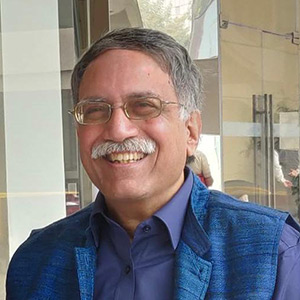
Prof. GJV Prasad
GJV Prasad formerly Professor of English at Jawaharlal Nehru University is a poet, novelist, and translator. His teaching and research have focused on Indian English literature, modern drama, and translation.
His recent publications include four edited volumes – Violets in a Crucible: Translating the Orient (co-edited with Madhu Benoit and Susan Blattes), India in Translation Translation in India, and Disability in Translation: The Indian Experience (co-edited with Someshwar Sati), and Reading Dalit: Essays on Literary Representations – and a short monograph on Khushwant Singh. His latest publication is a translation of Ambai’s stories, A Red-necked Green Bird.
Email: gjv.prasad@gmail.com
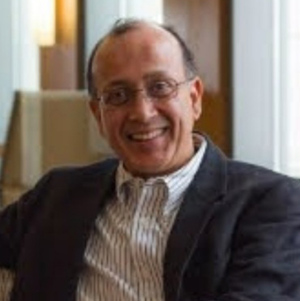
Prof. Vibhas Madan
Vibhas Madan, Ph.D., Professor of Economics, was appointed dean of Drexel University’s LeBow College of Business and R. John Chapel, Jr. Dean’s Chair in December 2020.
He joined the Dean’s Office in July 2018 as senior associate dean for academic programs and was appointed interim dean in November 2019. Prior to that, he served as the head of the Economics Department and then as the founding director of the School of Economics, which was launched as a new school within the college in 2013.
Vibhas Madan joined Drexel in 1989, after completing his doctorate in economics at Michigan State University. He also holds a masters and an undergraduate degree in economics from Delhi University. With a research focus on international trade theory as it impacts policy and multinational firms, his work has been widely published in academic journals, including the Canadian Journal of Economics, International Trade Journal, Journal of Quantitative Economics, Journal of Economic Integration and the Review of International Economics. He has received several teaching awards, including the College of Business Teaching Award and the Executive MBA Teaching Award. He also serves on the board of the Global Interdependence Center.
Email: madanv@drexel.edu
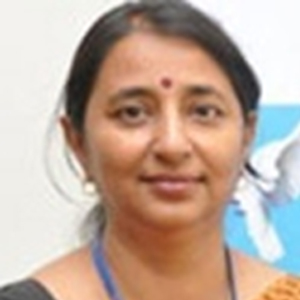
Dr. Tulika Chandra
Dr. Tulika Chandra is a Professor in the Department of English, and former Dean Students Welfare at Shiv Nadar University. Drawing from her training in Linguistics, she develops and implements programs for second-language learners. A Ph.D. and M.Phil from JNU, she designs and teaches courses based on student-needs analysis. Her area of interest is in the field of Translation Studies, Folk Literature, Folkloristics, and English Language Teaching. Her publications include books, book chapters, and articles published in journals; she has translated and edited folktales from Braj language & Hindi into English. Dr. Chandra is a US International Exchange Alumni. She is a folklore collector, currently working on two active Folklore Projects. Apart from folklore, she is working on the notion of learner-centered instruction and the role of instructors in the classroom.
Email: tulika.chandra@snu.edu.in
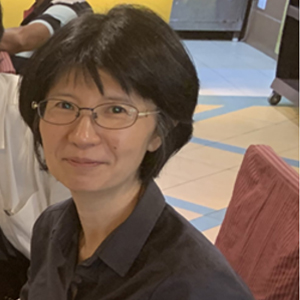
Riho Isaka
Riho Isaka is a Professor in the Department of Area Studies at the Graduate School of Arts and Sciences, the University of Tokyo. Her research interests concern issues of language, politics, food, and identity in colonial and postcolonial India, especially Gujarat. Her publications include Language, Identity, and Power in Modern India: Gujarat, c.1850-1960 (Routledge, 2022),‘Gujarati Intellectuals and History Writing in the Colonial Period’, Economic and Political Weekly, 37-48 (2002), and ‘Language and Dominance: The Debates over the Gujarati Language in the Late Nineteenth Century’, South Asia: Journal of South Asian Studies, 25-1 (2002).
Email: isaka@g.ecc.u-tokyo.ac.jp
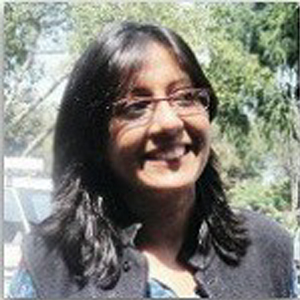
Simi Malhotra
Simi Malhotra is Professor and Head, Department of English, Jamia Millia Islamia, Delhi. Her latest publications are the edited books Food Culture Studies in India: Consumption, Representation and Mediation, and Inhabiting Cyberspace in India: Theory, Perspectives and Challenges, both in 2021 from Springer, and the co-authored books Terrains of Consciousness: Multilogical Perspectives on Globalization, in 2021 from the Würzburg University Press, Germany, and Ocean As Method: Thinking With The Maritime, in 2022 from Routledge.
Email: simimalhotra@hotmail.com
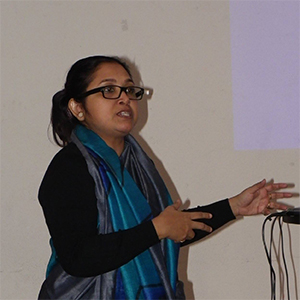
Dr Nandini Saha
Dr Nandini Saha is Professor, Department of English, Jadavpur University, West Bengal. Her areas of specialization are Postmodernist Fiction, Translation Studies, Bengali Dalit Literature. She has published articles in journals and also has chapters in edited volumes. She has been teaching at the University level in Bengal for more than 25 years.
Institutional Address: Department of English, Jadavpur University, Kolkata – 700032. West Bengal
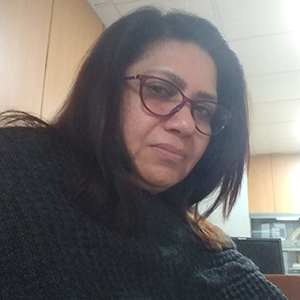
Dr. Mily Roy Anand
Dr. Mily Roy Anand is Professor in the Department of Gender Studies, National Council of Educational Research &Training, New Delhi,an autonomous organisation that assists and advises the Central and State Governments on policies and programmes for qualitative improvement in school education. She completed her M.A. And M.Phil in History from the Jawaharlal Nehru University, New Delhi and has a doctoral degree in History from Barkatullah University in which she explored the social and cultural history Of Uttarakhand (15thto early 19th century A.D.) through its folklore.
Dr. Anand has been working in the area of school education and possesses a vast and varied experience in the area of History and social science education as well as Gender and its varied dimensions in the context of school education. Her current interest and research are in mainstreaming gender equality and empowerment in schools; and developing the skills of enquiry, investigation, analysis, evaluation through a study of the past. Her work centers on the ways in which gender, history and social science education can be strengthened to provide learners with requisite knowledge, skills and attitudes that will help them to evolve as competent, rational and informed citizens. With curriculum and textbook development being an important mandate of NCERT, Dr. Anand has been involved in development of national curriculum frameworks and in the development of textbooks. She was a member of the Focus Group for development of the Position Paper on Gender Issues in Education (2006) and also member of the textbook development team for the History textbook Our Pasts II for class VII(2006). She also contributed towards development of history syllabus for Teacher Educators of Afghanistan. Review of syllabi and evaluation of textbooks also being an integral part of curriculum development, she reviewed history syllabi of the states of Manipur, Punjab, Mizoram, Nagaland, Madhya Pradesh, Uttarakhand and Karnataka in the light of NCF 2005 .
With NCERT’s thrust in the areas of Research, Development and Training, Dr. Anand has been an integral part of various research projects, namely Field Studies in the Sociology of Education in India, National Achievement Survey at the end of class VIII, Evaluation of Implementation of Kasturba Gandhi Balika Vidyalaya (KGBV)Scheme, Policy Research on Education and Skill Development from the Perspective of Gender Equality- A Comparative Study of India and Korea’. She also has expertise in the development of variety of educational materials such as training packages/ handbooks/manuals, bridge courses, training modules, and audio-visual materials, for equipping students, teachers and teacher educators for enhancing their knowledge and skills so as to improve the quality of school education. Some of the materials which she has developed are : Development of Learning Material in History for Visually Challenged Students (Upper Primary Stage): Bridge Course in History for KGBV girls and Teacher Training Package in History for KGBV Teachers, Development of E-Content in History for Upper Primary and Secondary stages; Short films on the Andaman & Nicobar Islands and Jallianwallah Bagh, etc. Recently she prepared the Alternative Academic Calendar in History for classes IX and X for the year 2020-21 to enable children to have access to learning resources during the pandemic.
Dr. Anand has also trained a number of teachers/teacher educators/Principals in various capacity building programmes in the area of gender and social science education, namely NISHTHA, ITPD, Orientation of Textbook writers, Training of KGBV teachers, etc. With the development of the new NCF gaining momentumm in the light of NEP 2020 , presently she is the Member Secretary of the National Focus Group for development of the Position Paper on Gender Education which will provide direction to the NCF on integrating gender dimensions in every aspect of the schooling process.
She has authored the articles, “ Understanding the Socio-Cultural Experiences of the Pahari Folk; The Jagar Gathas of Kumaon and Garhwal” and “Folk Legends as Mirrors of Peoples’ Experiences: The Virgathas of Kumaon and Garhwal “ in Indian Journal of Folklore Research (IFRJ); co-authored “The Inclusion of SC Girls in Education System: A long Path Ahead” in Social Change; “Tripura: Land of Diversity” in North East India People, History and Culture as well as articles in other journals and modules for for various training apckages and manuals.
Email: milianand5@gmail.com
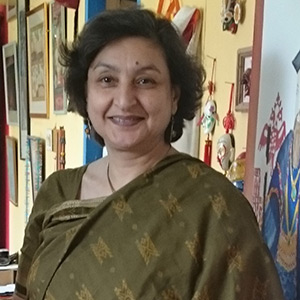
Ms. Omita Goyal
Omita Goyal is presently Chief Editor of the IIC Quarterly, Journal of the India International Centre. She started her career in the voluntary sector with the Indian Social Institute, New Delhi. Shortly thereafter, she moved into academic publishing where she has spent over 27 years. She worked at SAGE Publications India Pvt. Ltd. for 20 years, leaving as General Manager. She took time off to work as a freelance editor for SAGE and other institutions, such as the World Bank, UNICEF, UNDP, Voluntary Health Association of India, Centre for Women’s Development Studies, WHO, Institute of Social Studies. The Hague and TERI.
In 2005, she was invited by Taylor and Francis to start a social science programme under their social science and humanities imprint, Routledge, as Publishing Director.
Email: editor@iicdelhi.in
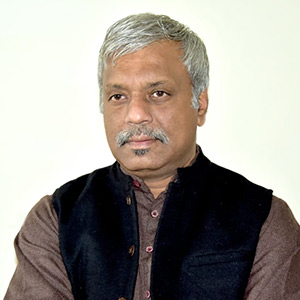
Dr. Uttam K Sinha
Uttam Kumar Sinha is a leading scholar and commentator on transboundary rivers, climate change and the Arctic. After a brief stint in the print media and a doctoral degree from Jawaharlal Nehru University, he joined the Institute for Defence Studies and Analyses in 2001, where he heads the Non-Traditional Security Centre and is the Managing Editor of Strategic Analysis published by Routledge, the institute’s flagship journal.
He is a recipient of many fellowships and leadership programmes including senior fellow at the Nehru Memorial Museum and Library (2018-2020); US-South Asia Leader Engagement Programme at the Harvard Kennedy School (2015); Chevening ‘Gurukul’ leadership at the London School of Economics and Political Science (2008) and a visiting fellow at the Peace Research Institute Oslo (2006).
His recently published work is titled Indus Basin Interrupted: A History of Territory and Politics from Alexander to Nehru (Penguin, 2021). His other works include the Riverine Neighbourhood: Hydro-politics in South Asia (2016) and Climate Change Narratives: Reading the Arctic (2014).
His edited and co-edited volumes include The Modi Doctrine: New Paradigms in India’s Foreign Policy (Wisdom Tree, 2016); Non-Traditional Security Challenges in Asia: Approaches and Responses (Routledge, 2015); Arctic: Commerce, Governance and Policy (Routledge, 2015) and Emerging Strategic Trends in Asia (Pentagon Press, 2015).
Email: uksinha2001@gmail.com
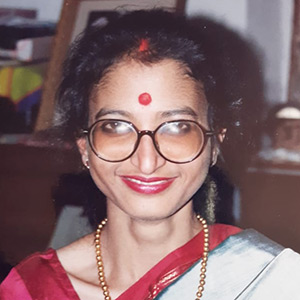
Ms. Rita Sinha
Rita Sinha taught English at various colleges in Delhi university from 1985 to 2018.
She was in the English department of JDMC from 1990 till her retirement.
She was a member of the Academic Council of the university for two terms, and served on several committees in the college.
Email: ritasinha110011@live.com
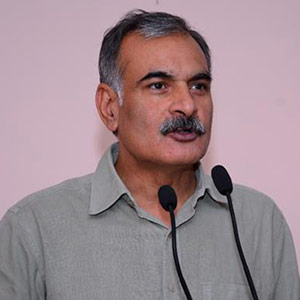
Dr. Ravikant
Dr. Ravikant, Associate Professor at the Centre for the Study of Developing Societies (CSDS), is a bilingual historian, writer, and translator and co-editor of the centre’s peer-reviewed journal, Pratiman. He taught Indian and world history in various colleges of Delhi University before joining the Sarai programme in 2000.
He is the author of Media ki Bhasha-leela (2016), and his collaboratively edited books include Translating Partition, Deewan e Sarai 01: Media Vimarsh: Hindi Janpad, Deewan e Sarai 02: Shaharnama, special issue of Hans on New/Social Media (September, 2018). An anthology co-edited with Francesca Orsini, Hinglish Live: language-mixing across media is in press (Orient BlackSwan).
Email: ravikant@csds.in
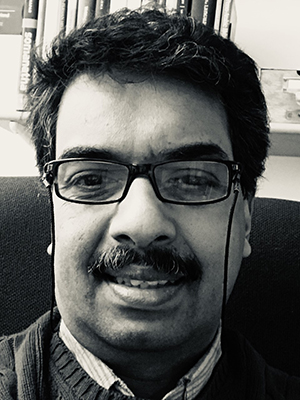
Dr Nilanjan Sarkar
Dr Nilanjan Sarkar was awarded his PhD in 2005 from the School of Oriental and African Studies, University of London, on a Persian Advice text written in 14th century Delhi, now surviving as a single manuscript in the collections of the British Library. His specialism is in the medieval Islamic history of the Indian subcontinent, with a particular focus on the pre-Mughal period (AD 1000-1400) in which he holds a Masters and an MPhil from the University of Delhi. In 2009 he was Post-Doctoral Fellow at the Zentrum Moderner Orient in Berlin, where he worked on the role of imagination in urban descriptions of Delhi in the 14th century. He has recently published Streaming the Past: Peninsular India in History (co-edited, 2019), and is currently working on a book manuscript on the role of India’s early Islamic history in its contemporary identity. He has taught in several colleges in Delhi, and at the School of Oriental and African Studies, London.
His research interests and publications are in scribal cultures and making of historical archives in early medieval India, techniques of history-writing in Indo-Persian traditions, the creation of historical knowledge in Islamic pre-Mughal India, and investigating categories of identity – of individuals, groups and institutions. A wider spread of these interests includes concerns with the use of history in contemporary India’s construction of identity, selfhood and nationhood; and he was associated with a project on the history of friendship in pre-colonial India.
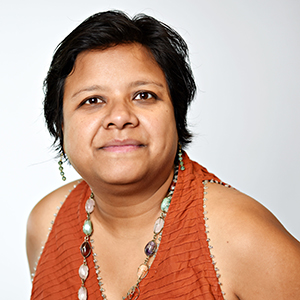
Dr Jayeeta Sharma
Dr Jayeeta Sharma is an Associate Professor of History, Global Asia Studies, and Food Studies at the University of Toronto. She was born in Assam and received degrees from Cotton College, Lady Shri Ram College, Delhi University, and the University of Cambridge where she was a Commonwealth Scholar from India. She has also taught at Lady Shri Ram College (India), Carnegie Mellon University (USA), and the University of Gastronomic Sciences (Italy).
Email: jayeeta.Sharma@utoronto.ca
